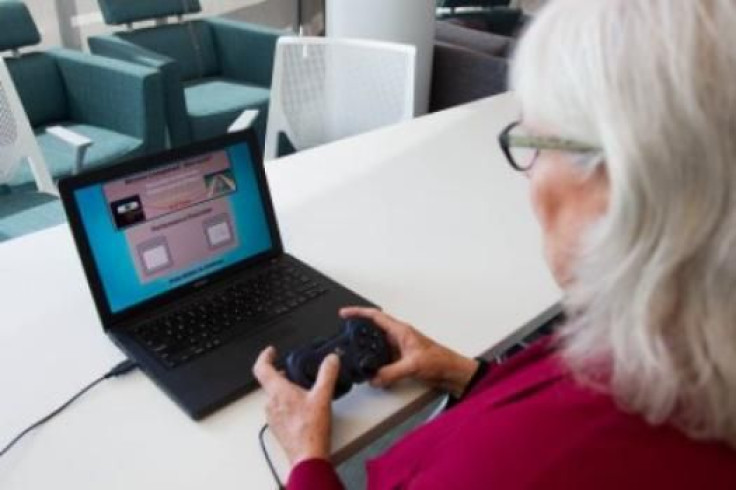Video Game Improves Elderly Cognitive Functions, Multitasking, And Attention After Just 12 Hours Of Gameplay

Videogames have been shown to improve cognitive skills among children, as well as problem solving and creativity skills among teenagers. Now, according to a new study, one video game has been shown to improve cognitive function and multitasking skills among the elderly, and at better rates than younger players.
Researchers at the University of California San Francisco (UCSF) developed a driving game called NeuroRacer. The game involved driving a car around a winding track while street signs popped up. Participants, ages 60 to 85, were told to push a button on the controller whenever a certain sign appeared, while ignoring the rest. This multitasking exercise was designed to see how the brain responded to interference — which increases as we age — while it was performing.
“You really had to focus,” study participant Ann Linsley, 65, of Berkeley, Calif., told the Associated Press. I went through 22 levels. By the end, we were really cooking along.”
After only a month of playing the game for a total of 12 hours, elderly participants showed improvements in multitasking, memory, and sustained attention. Their performance surpassed that of participants in their 20s who had played the game for the first time. Six months later, participants were still able to maintain their level of performance.
“The finding is a powerful example of how plastic the older brain is,” Dr. Adam Gazzaley, UCSF associate professor of neurology, physiology, and psychiatry, said in a statement. He says that it continuously trains a person’s brain to get better, since it continues to get harder, preventing them from going on autopilot once they’ve mastered the skill. “Normally when you get better at something it gets easier,” but with this game, “when you get better, it gets harder.”
Dr. Gazzaley discovered that the elderly participants’ attention increased by using electroencephalographic (EEG) recordings to see how their brains worked during their gameplay. They found that neural markers of cognitive control — the midline frontal theta and theta coherence — showed improvement, and began to resemble those of young adults. Participants also completed the Test of Variables of Attention (TOVA), which measures sustained attention, and their scores correlated to improvements in their cognitive control.
“We see this as evidence that the training may have improved our study participants’ ability to stay in an engaged, active state for a longer period of time,” study author Joaquin Anguera said in the statement. “The amount that midline frontal theta went up was related to something that was untrained, this other measure, the TOVA. It implies there’s something that changed that was common to the training and to the task we tested afterward.”
Source: Anguera J, Gazzaley A, Rintoul L, et al. Video Game Training Enhances Cognitive Control in Older Adults. Nature. 2013.



























